Landlords are getting more creative to offset higher taxes with bigger profits, and buying a property at auction can be a brilliant move, offering a unique pathway to greater returns and faster turnarounds.
The viability of a rental property can be massively boosted by reducing your tax liabilities while increasing your allowable expenses, and buying a fixer-upper at auction can tick both those boxes.
However, the very idea of auctions can be a little scary for the uninitiated, despite the obvious benefits.
Traditional auctions flip the buying process on its head. Surveys, mortgage offers and legalities are all completed before you bid; there’s no guarantee of winning, and instant legal commitment if you do.
Modern auctions offer more flexibility, but are still quite different to buying in the regular way, so we’ve put together a handy guide and packed it with info and tips on:
- The advantages of buying at auction
- Becoming an auction whizz
- Auction bidding options
- Fees and terms when buying at auction
- Reducing your renovation costs
If you’ve already seen an auction property in the Wilton and Salisbury area that needs some work or is ready to go, give us a call to check the current demand - we may already have tenants we can start lining up.
Meanwhile, let’s explore whether buying at auction could be right for you.

THE ADVANTAGES OF BUYING AT AUCTION
Buying a rental property at auction is perfect if you’re keen to add capital value through renovation, as many properties require significant improvements. There are other benefits as well, including:
- Speedy transactions from a swift exchange of contracts and pre-prepared legal work, cutting out lengthy, uncertain negotiation periods. More often than not, there’s also no onward chain.
- Open and transparent bidding ensures that everyone sees the true level of interest. And with the seller and buyer both legally committed, there’s zero chance of being gazumped.
- Properties often sell for less than their open market value, offering strong profit margins after renovation if you’re smart about procuring materials and fittings (more on that later).
In short, buying at auction can offer certainty and efficiency that’s often missing from traditional sales, helping you secure assets quickly and letting you focus on the exciting renovation phase sooner.

BECOMING AN AUCTION WHIZZ
Being adept at auction buying involves preparation, research, and a calm approach. Knowledge is your most powerful tool, and the more you know about what’s involved, the more confident you'll feel.
- Always view properties before the auction, ideally with a builder or surveyor, to identify any problems, opportunities, and costs. Take along our guide to buying the perfect buy-to-let.
- Properties usually have a few viewing slots before the auction, typically on a weekday. You could visit alone first, then return with your builder or surveyor if you get a good feeling.
- Investigate comparable nearby sales, research rent values online and with local agents, and check crime rates if you’re unfamiliar with an area.
- Secure your finances in advance, which means sending your lender’s valuer in if you’re getting a mortgage, so you have an offer in place before the auction.
- Determine your absolute maximum bid, including renovation costs and all fees. Stay calm and stick to your limit - there will always be another property if you get outbid.
Practice makes perfect, so attend a few auctions as an observer, whether in person or online, to gauge the pace and atmosphere. Think patience, discipline, and knowing when to walk away.
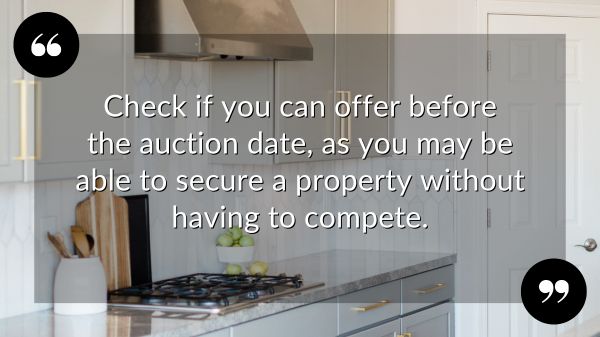
AUCTION BIDDING OPTIONS
Understanding how to bid effectively is key to auction success. There are several ways to take part, each with its own nuances, and standard bidding methods include:
- In-room bidding. This traditional method requires your physical presence. You bid by raising your paddle or hand.
- Proxy bidding. You submit your maximum bid before the auction, and the auctioneer bids on your behalf up to that limit.
- Telephone bidding. You stay on the phone with an auction house representative who is in the auction room. They bid on your behalf, following your instructions.
- Online bidding. Many auction houses now offer this option, with real-time video feeds from the room, and offers submitted remotely via their live platform.
Finally, check if you can offer before the auction date, as you may be able to secure a property without having to compete; most auction houses welcome early offers, so you’ve got nothing to lose!
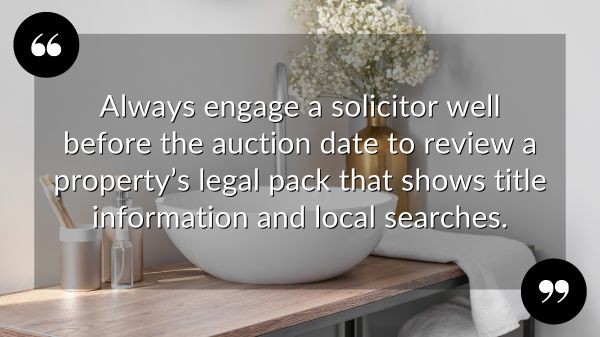
FEES AND TERMS WHEN BUYING AT AUCTION
There are fundamentally two types of property auction - modern and traditional - and the process and costs for buying at either are different from those of a regular purchase. The main differences are:
- Traditional Auctions require a 10% deposit and immediate exchange of contracts upon winning, legally committing you to the purchase. The balance and completion are due within 28 days.
- You’ll also pay an additional buyer’s premium to the auctioneer straight away, typically between £2000 and 5% of the purchase price, depending on the value.
- If you win a Modern Auction, you pay a non-refundable reservation fee of around 5% of the price, have 28 days to exchange, and 56 days to complete. You can withdraw before exchanging.
- The Modern Auction reservation fee is paid to the auctioneer or agent and doesn’t form part of the purchase price. If you pull out of the deal, you’ll probably (but not always) lose the fee.
- Regardless of the auction type, always engage a solicitor well in advance to review a property’s legal pack (available from the auctioneer) that includes title information and local searches.
As you can see, failing to complete your legal checks can result in significant financial losses, so while the upfront cost of a solicitor is a risk before you win the bidding, it’s far cheaper than the alternative.
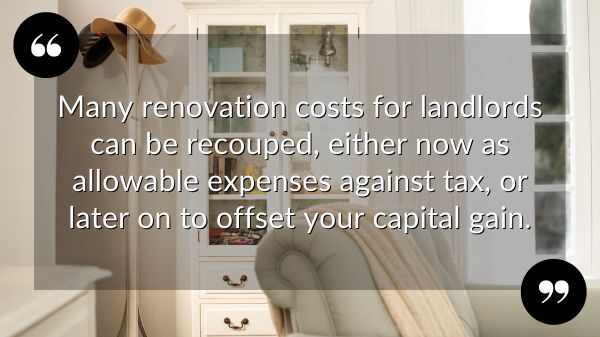
REDUCING YOUR RENOVATION COSTS
Renovating an unmodernised property isn’t cheap, but it doesn't have to break the bank either. From rescuing old materials to buying new at bargain prices, here’s where to find smart deals and discounts:
- Architectural salvage and reclamation yards are excellent for period features like doors, windows, floors, architraves, tiles, and hardware - perfect for restoring original character.
- Websites like eBay, Gumtree, and Facebook Marketplace offer a vast array of used items. And if you’re prepared to dismantle or uninstall fittings, you can get some real bargains.
- Builders’ merchants sometimes have clearances where they sell end-of-line, surplus, or slightly damaged stock at huge discounts.
- Showroom sales of ex-display kitchens and bathrooms can help you secure brand-new, high-end fittings at hefty reductions.
- Leftovers from previous projects. Do you have any surplus tiles or flooring from an earlier renovation? If any are now out of stock, look for where you can mix and match finishes in style.
Many (and sometimes all) renovation costs can be recouped, either now as allowable expenses against income tax, or later on to offset your capital gain, if and when you sell, so keep every receipt!
Are you looking to expand your rental portfolio?
With careful planning and the right approach, you can secure the right prospect, turn it into a profitable magnet for high-quality tenants, and build a truly satisfying investment.
If you're considering buying at auction or want expert advice on rental property in the Wilton and Salisbury area, we'd love to help. Call us on 01722 580059 or email us at info@piccoloproperty.co.uk for a friendly, no-strings chat.

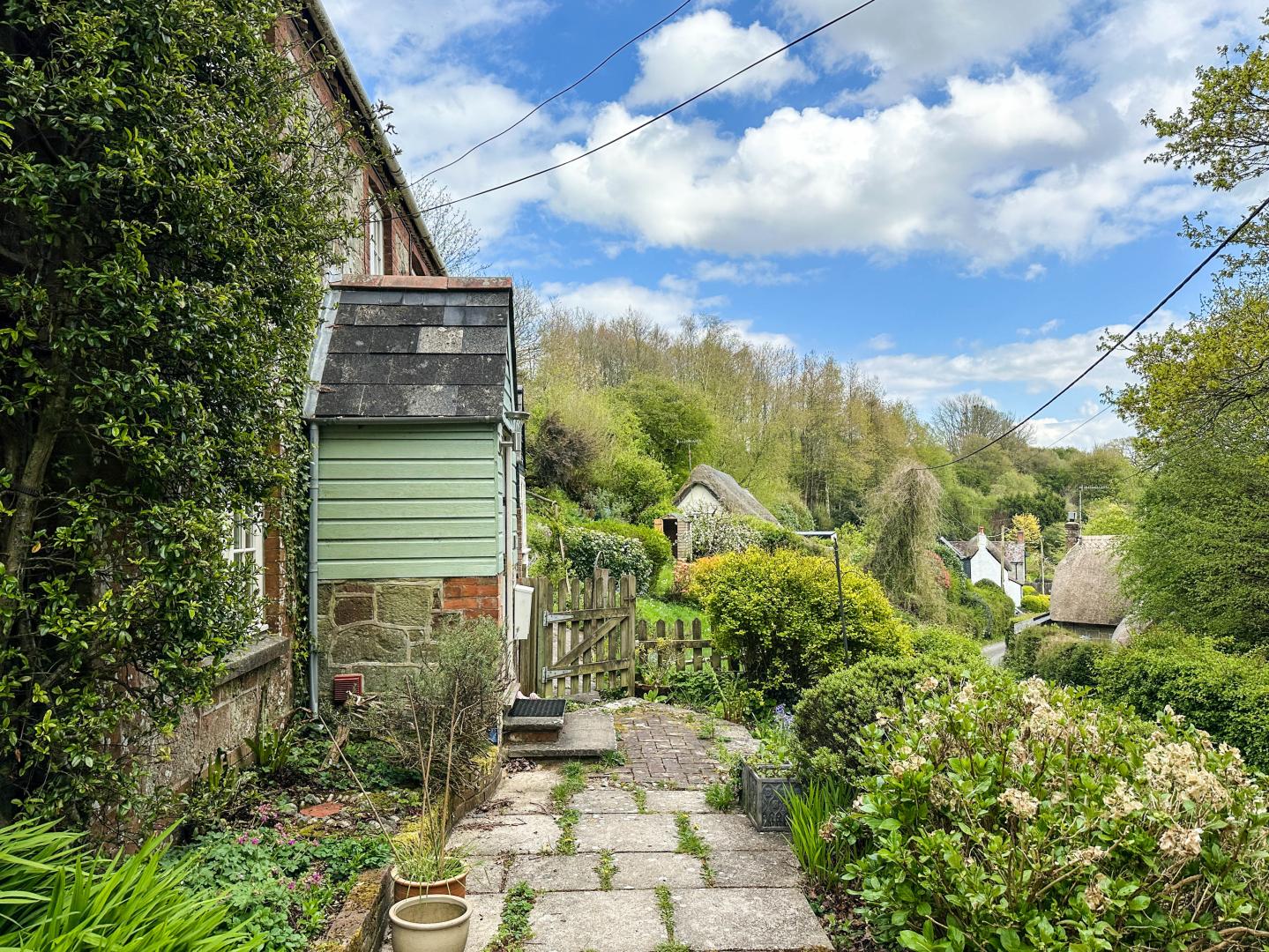

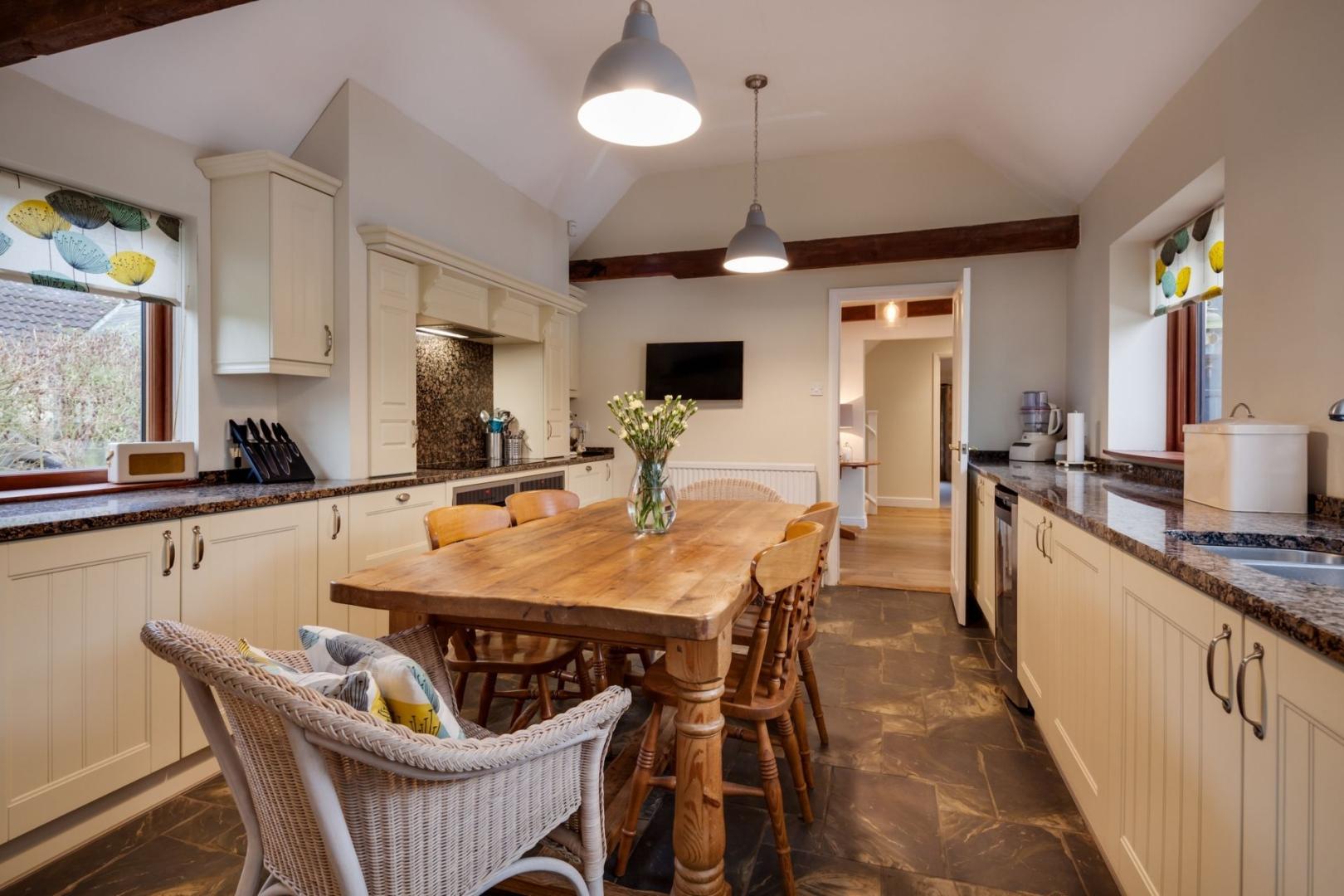
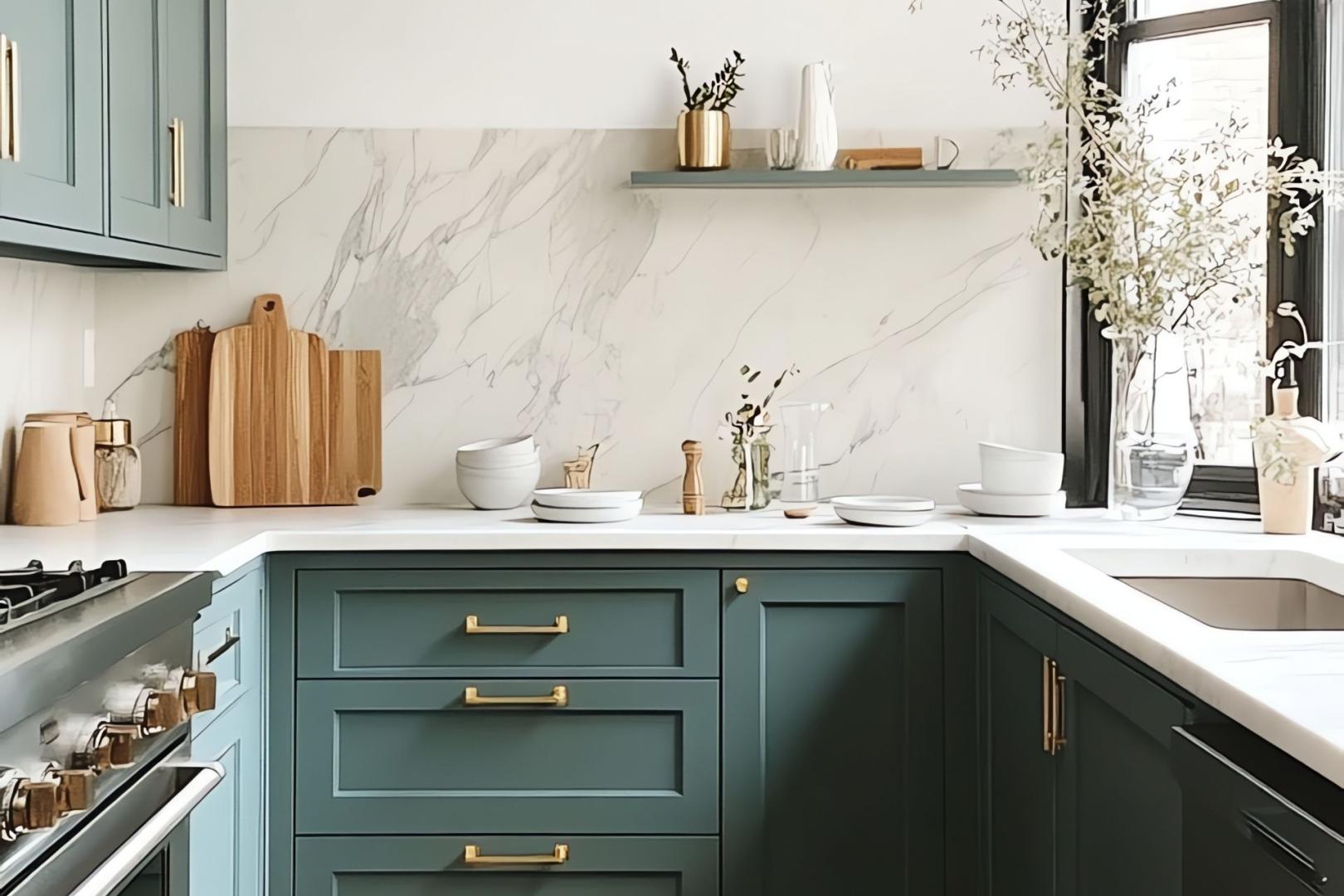

Share this with
Email
Facebook
Messenger
Twitter
Pinterest
LinkedIn
Copy this link